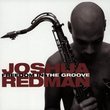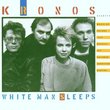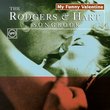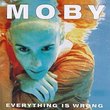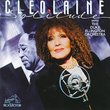| All Artists: Peter Delano Title: For Dewey Members Wishing: 1 Total Copies: 0 Label: Sunny Side Records Original Release Date: 1/1/2008 Re-Release Date: 10/21/2008 Genres: Jazz, Pop Style: Number of Discs: 1 SwapaCD Credits: 1 UPCs: 016728120029, 0826596045061, 826596045061 |
Search - Peter Delano :: For Dewey
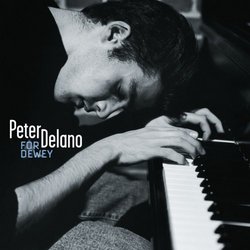 | Peter Delano For Dewey Genres: Jazz, Pop
If the nineties was the decade of the Young Lions, then New York pianist Peter Delano was the leader of the pack: a photogenic child prodigy; an impossible teenage amalgam of McCoy Tyner s chordal power, Bud Powell s linea... more » |
Larger Image |
CD DetailsSynopsis
Product Description If the nineties was the decade of the Young Lions, then New York pianist Peter Delano was the leader of the pack: a photogenic child prodigy; an impossible teenage amalgam of McCoy Tyner s chordal power, Bud Powell s linear luminosity, and Keith Jarrett s pianistic poetry. A student of Red Rodney s pianist Gary Dial, Delano performed and recorded with the likes of Michael Brecker, Gary Bartz, and Lewis Nash, and burst on the scene with his self-titled 1993 Verve debut CD, at the age of seventeen, followed by his 1994 Polygram release Bite of the Apple. He enrolled at Columbia University, but tragically, suffered a debilitating back injury that forced him to stop playing, until he resumed his career in 2007. This CD - recorded in 1996 and released here for the first time is a posthumous tribute to the late great tenor saxophonist Dewey Redman, with Danish drummer Anders Hentze and bassist Doug Weiss. As the esteemed jazz critic Ira Gitler writes in the CD liner notes, Peter continued to fulfill his great promise with his 94 release, Bite of the Apple. What is now For Dewey was to be his third CD. It didn t make it to the public because Peter began to matriculate at Columbia University. He wasn t available to tour in support (as they say) of his recordings and labels want their artists to be visible. For Dewey was yet another forward step. The originals reflect a still-growing Peter, as do his interpretations of the three standards. Redman is a presence on three of the five originals and there is magic in the interaction of the two principals. Indeed, Dewey s full-throated, Texas tenor/Coltranistic sheets of sound approach complements Delano s profound-for-his age-pianisms and compositions, on the spirited Latin-tinged opener Zoning, the Wayne Shorter mood of Sound Spirits, and the slightly Spain-sketched Too Long to Wait. Delano, Hentze, and Weiss display their intricate trio intricacy on Inner Limits, a light-speed workout played in the so-called burnout style of the 90s, and Summer Song, an elegant waltz. For All We Know, the tango-centric Everytime We Say Goodbye, and If I Should Lose You, all belie Delano s respect for, and love of, the standard tradition that every jazz musician must master. For Dewey represents for Peter Delano not only a return to the world of recorded music; it also marks the re-emergence of a shining star in a galaxy of jazz talents. Now he is reclaiming his seat at the piano and the helm of his career, Gitler writes. Just listening to the sheer energy, joy and overall mastery of For Dewey, makes one more than half-past ready for Peter s re-entry in the new millennium. I m willing to bet it is going to be a giant step. Good health to him and the world of jazz. Similarly Requested CDs
|
CD ReviewsAWESOME MayaNYC | New York, NY United States | 01/06/2009 (5 out of 5 stars) "An Awesome CD--Both Standards and Delano Originals are Fantastic. Bass, Drums & Piano are very tight---as if they've been playing together for many years. And Dewey is incredible. It is a great tribute to him--no generation gap here! Very tragic that he has passed---but welcome back Peter Delano-you've been gone way too long!" Concentrated passion L. A. Weinreich | London, UK | 01/06/2009 (5 out of 5 stars) "Redman exposes the depths of his soul. Delano reveals fresh vistas. Although pairing mature veteran and precocious talent might appear a risky enterprise, it results in an intensely passionate album, further evidence that age poses no barrier to making profound music." WOW! Jazzy Lady | New York, NY United States | 01/08/2009 (5 out of 5 stars) "WOW! That's all I gotta say--WOW! Listen to it and you'll know exactly what I mean---especially If you love Jazz the way I do. We need more like this . I truly hope Peter D. will put out another one soon---Everyone is great on it. Sorry to hear about Dewey-but what a final bow he takes on this one!
Jazzy Lady" |

 Track Listings (8) - Disc #1
Track Listings (8) - Disc #1


